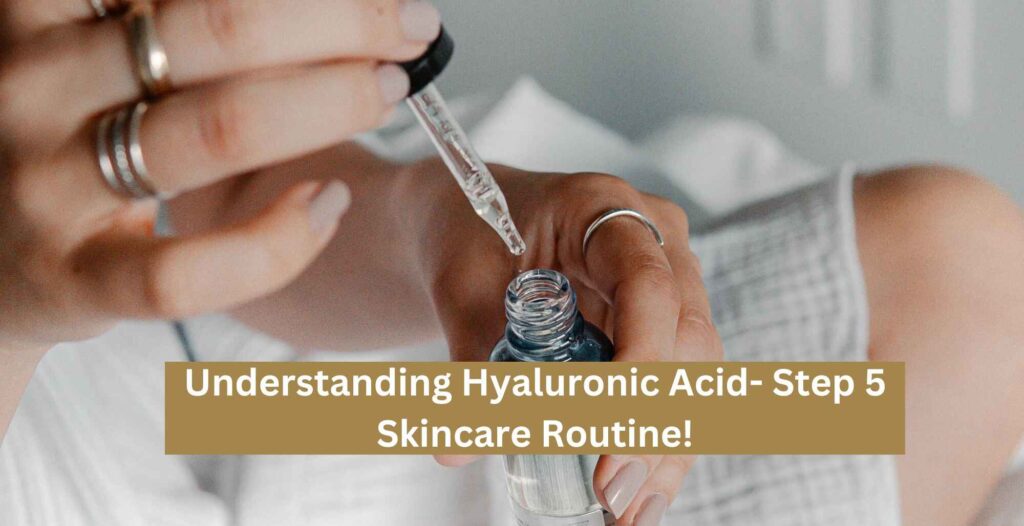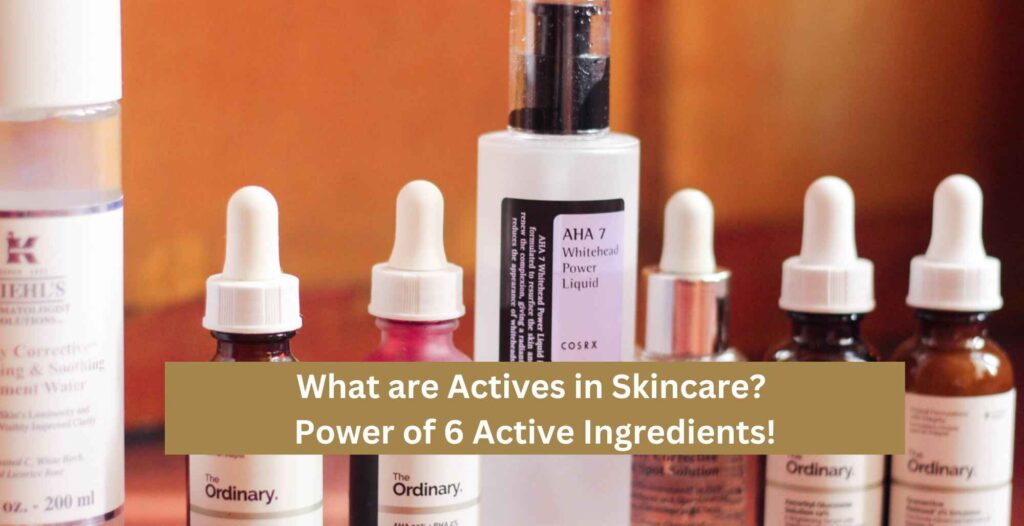Because of its calming and hydrating qualities, rose water has been a beauty mainstay for generations. However, you may wonder if you have skin prone to acne. Is rose water good for acne-prone skin? Reducing inflammation, regulating oil production, and soothing irritation are some natural advantages.
Table of Contents:
What Is Rose Water? You Need To Know!
Rose petals can be steeped in water or distilled with steam to extract their essence, creating rose water, a natural liquid. Roses’ healthful ingredients are captured in this procedure, producing a fragrant and calming end product. Rose water’s anti-inflammatory qualities help reduce redness, inflammation, and swelling, and its abundance of antioxidants helps shield the skin from harm brought on by free radicals.
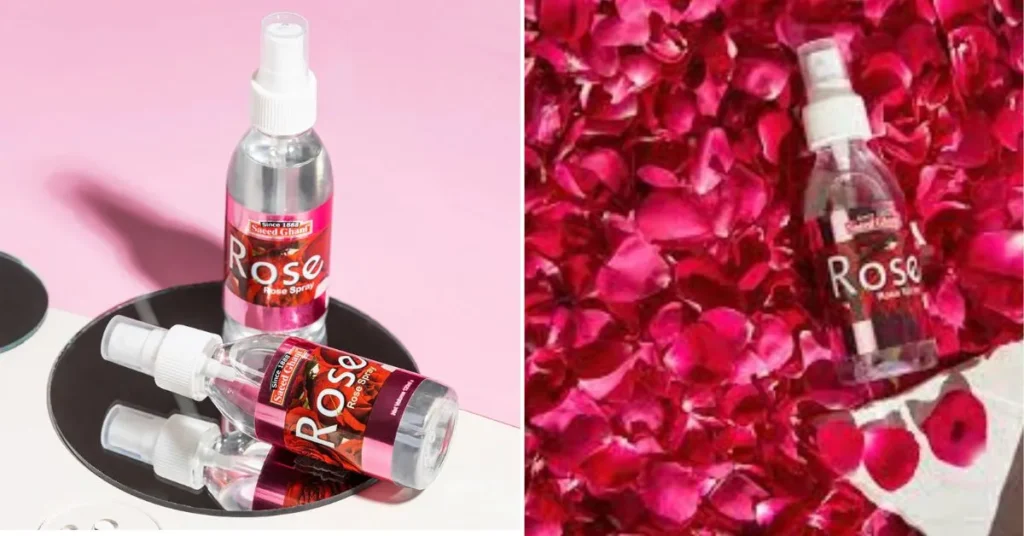
Beyond its health benefits, rose water’s naturally pleasing scent gives skincare procedures a soothing, almost therapeutic touch. Because of its delicate nature, it can be used on a range of skin types, including those who are sensitive or prone to acne. Rose water is prized for its capacity to hydrate, revitalize, and balance the skin, providing both cosmetic and natural healing effects. It is frequently included in toners, face mists, and masks.
Why Is Rose Water Good for Acne-Prone Skin? – Lets Know!
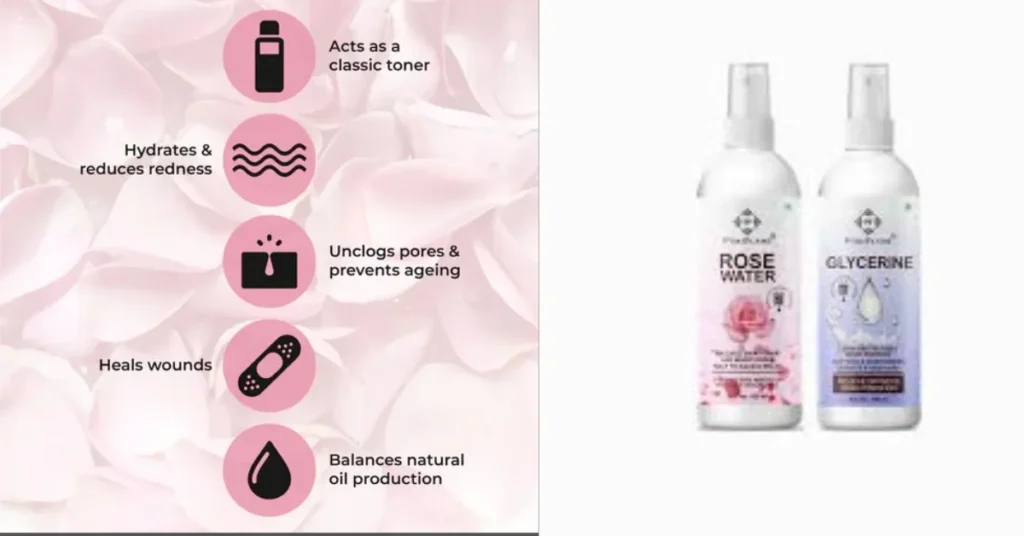
1. Reduces Inflammation:
Gently combats germs that cause acne. Redness and swelling are common symptoms of acne. The anti-inflammatory qualities of rose water can soothe sensitive skin, lowering irritation and redness.
2. Balances Skin pH:
Excessive oil production from an unbalanced pH can block pores and result in acne. By restoring the skin’s natural pH balance, rose water helps stop breakouts.
3. Hydrates the Skin:
Overproduction of oil by dehydrated skin can clog pores. Lightweight hydration from rose water keeps the skin hydrated without making it feel oily.
4. Combats Bacteria:
Rose water’s gentle antibacterial qualities can aid in the fight against germs that cause acne on the skin’s surface.
5. Reduces Skin Irritation:
Rose water’s calming and cooling properties can offer immediate treatment to skin that is irritated or prone to acne.
How to Use Rose Water for Acne-Prone Skin – Step By Step!
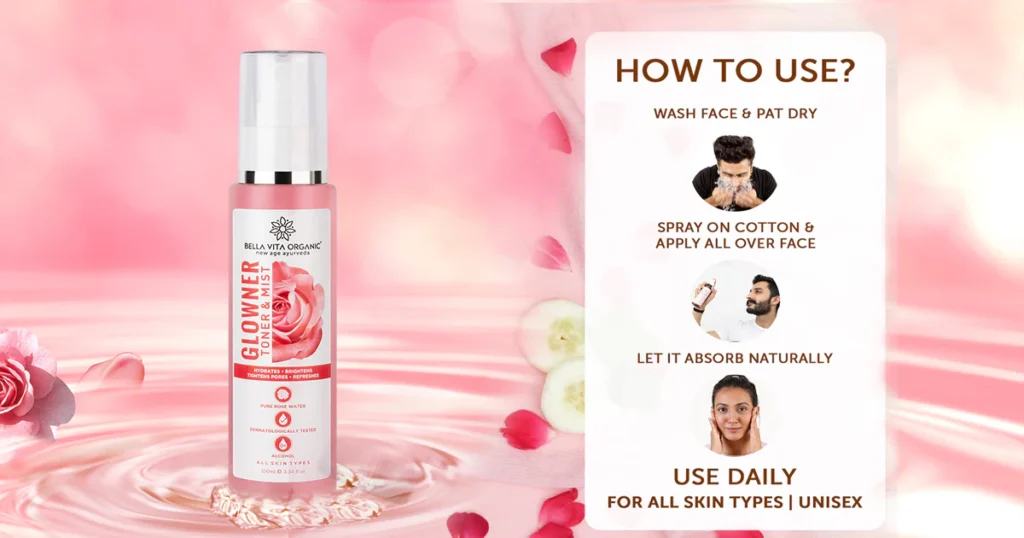
- As a Toner: Use a cotton pad to dab rose water onto your face or spritz it directly onto your skin after cleansing. Your pores will get tighter and your skin will be ready for a moisturiser.
- In Face Masks: Use rose water with clay or sandalwood powder to make a soothing face mask that helps lessen acne.
- As a spray: To calm and hydrate your skin, spray it with rose water throughout the day.
- Spot Treatment: To lessen redness and swelling around active acne, soak a cotton ball in rose water and apply it to the area.
Tips for Choosing the Best Rose Water
- Look for Pure, Natural Rose Water: Select goods that are created entirely of genuine rose petals without the use of artificial scents, chemicals, or preservatives. This guarantees that you’re receiving all of the advantages of rose water without any extraneous ingredients that can aggravate your skin.
- Check for Alcohol-Free Formulations: Alcohol can cause skin dryness, which is bad for sensitive or acne-prone skin. To make sure that rose water hydrates and calms your skin without making it even more dry or irritated, choose one that is alcohol-free.
- Choose Cold-Pressed or Steam-Distilled Rose Water: Alcohol can cause skin dryness, which is bad for sensitive or acne-prone skin. To make sure that rose water hydrates and calms your skin without making it even more dry or irritated, choose one that is alcohol-free.
- Ensure It’s Free from Artificial Colors and Fragrances: Skin responses and sensitivities might result from artificial chemicals. Choose naturally scented rose water and always look for artificial colors or scents on the packaging.
- Look for Packaging that Protects the Product: When exposed to air and light, rose water might lose its strength. Select items in opaque or dark-colored bottles to assist in maintaining the rose water’s purity and prolong its freshness and potency.
- Check the Ingredients List: Aside from rose water, check the ingredient list for any extraneous fillers or additions. Seek out products that just include rose water or a small number of skin-friendly components that contribute to its calming effects.
Does Rose Water Work for Everyone?
Rose water may not be a panacea for everyone, particularly those with severe or cystic acne, but it can be a useful supplement to your skincare regimen. Mild to moderate acne may benefit from rose water’s ability to reduce inflammation, balance oil levels, and lessen redness.
When used in conjunction with more focused acne treatments like benzoyl peroxide or salicylic acid, rose water produces the best effects. By exfoliating the skin, clearing clogged pores, and eliminating germs that cause acne, these substances are widely renowned for their ability to treat acne. These remedies can be more calming when mixed with rose water, avoiding the irritation that stronger acne drugs can occasionally cause.
Rose water can therefore make acne-prone skin seem better, but for people with more severe or chronic acne, it works best when combined with other compounds that have been shown to effectively combat acne. It’s always a good idea to see a dermatologist for a customized treatment plan if your acne is really hard to control.
FAQs:
1. Can rose water prevent acne?
Although it may not prevent breakouts for everyone, rose water can help prevent acne by balancing oil production, lowering irritation, and maintaining clean skin.
2. Is rose water suitable for oily skin?
Yes, rose water is great for oily skin since it keeps the skin hydrated and helps reduce excess oil.
3. Can I use rose water daily?
Of course! Rose water is mild enough to be used regularly as a skincare product, toner, or spray.
Conclusion:
Is rose water good for acne-prone skin? A natural and efficient remedy for skin prone to acne is rose water. Its antimicrobial, moisturizing, and anti-inflammatory qualities can help prevent and relieve acne while fostering healthy skin. For optimal effects, make sure you select pure, premium rose water.

